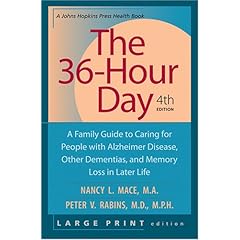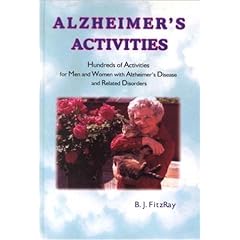
The 36-Hour Day: A Family Guide to Caring for People with Alzheimer Disease and Memory Loss in Later Life
This best-selling book is the "bible" for families caring for people with Alzheimer disease...offering comfort and support to millions worldwide. In addition to the practical and compassionate guidance that have made The 36-Hour Day invaluable to caregivers, the fourth edition is the only edition currently available that includes new information on medical research and the delivery of care.
The new edition includes:
new information on diagnostic evaluation-resources for families and adult children who care for people with dementia-updated legal and financial information-the latest information on nursing homes and other communal living arrangements-new information on research, medications, and the biological causes and effects of dementia.

Tami Greene said...
This book has been the single most helpful tool my family has been given to help us help my mother as she progresses with Alzheimer's Disease. While other books have touched on many of the topics in this book, no where else have we found as much practical information on how to avoid confrontations with her; ways to improve her daily living; ideas to keep her involved with us and to provide meaning to her life; questions to ask her doctors; types of resources that are available (depending on your area); what to expect as the disease progresses; and how to help each other as we take on the many different roles needed to provide care for her.
I highly recommend this book to others; in fact, I have purchased multiple copies to share with family members and donate to my local library - that's how helpful and important this book is!
Arthur Jones said...
This is a excellent book and reference for those learning to deal with Alzheimer. Plenty of resources and ideas of what to look for when caring for someone with this disease. You can get a good idea of what to expect and how to help those suffering with this devastating disease. Easy to understand and read. Can't recommend this book enough.





